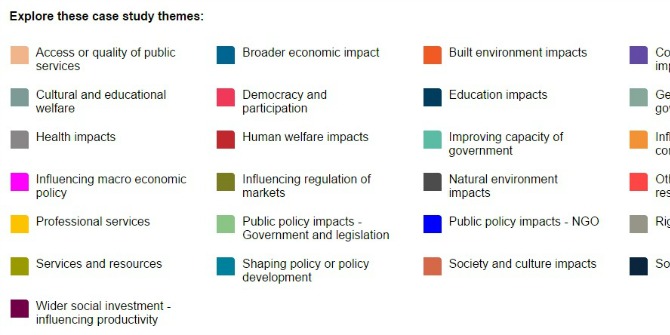 Especially for complex social issues like migration and integration, there is a pressing need to understand why certain policies work and others do not. Dominik Hangartner argues that when scholars are able to combine credible research designs with linked registry data and state-of-the-art targeted surveys, they have a greater chance of identifying the causal effects of policy parameters on short- and long-term immigrant and refugee integration.
Especially for complex social issues like migration and integration, there is a pressing need to understand why certain policies work and others do not. Dominik Hangartner argues that when scholars are able to combine credible research designs with linked registry data and state-of-the-art targeted surveys, they have a greater chance of identifying the causal effects of policy parameters on short- and long-term immigrant and refugee integration.
The recent influx of asylum seekers has led to severe social tensions, including alienation and economic hardship among refugees who frequently face exclusion and discrimination in the host countries. At the same time, we see anti-immigrant backlash among the native population who fear that the new waves of un-assimilated refugees will threaten their jobs, their welfare states, their security, and their national cultures. Faced with these stark signals of integration failures, European policy makers and scholars are debating how to redesign asylum processes and integration programs in ways that are supported by the European public.
The key objective of such policies is to break the vicious, and self-enforcing cycle between native backlash and integration failures. Despite the urgency of the challenge and the proliferation of policy entrepreneurship across Europe, there is surprisingly little empirical knowledge about which policies work, and which do not.

To some extent, this lack of evidence can be attributed to an array of methodological problems. The self-selection of migrants into destination countries, confounding effects of un-observable variables, and difficulty of measuring integration outcomes all hinder a comprehensive assessment of policy parameters on integration. This isn’t to say that immigration scholars are fighting quixotic battles. Methodological hindrances and data limitations can be – and have been – overcome. The best experimental or quasi-experimental research designs often benefit from some form of access to high-quality government data. The branches of government that hold individual-level, longitudinal information about the whole population of asylum-seekers and immigrants in respective European countries, usually in the form of registry data, are understandably protective of their information. However, when scholars are able to combine credible research designs with linked registry data and state-of-the-art targeted surveys, they have a greater chance of identifying the causal effects of policy parameters on short- and long-term immigrant and refugee integration.
Two recent studies from the Immigration Policy Lab, which I co-direct, exemplify how access to high-quality government records helps researchers identify policy effects. The first study considers the length of the asylum process, a period of time during which refugees must put their lives on hold while the state decides on their status. We gained access to the database that the Swiss Ministry of Migration uses to manage the entire asylum process, which includes detailed, individual-level records of application timelines and post-decision economic outcomes. Due to batch processing of applications, the time asylum-seekers spend in legal limbo is quasi-random – which allowed us to control for a host of potentially problematic, unobservable characteristics. The results are clear: the longer an asylum-seeker waits in administrative limbo, the lower the probability she finds work after a positive decision. Policies that reduce wait times foster economic integration and reduce expenditures.
The second study assessed the causal effects of acquiring citizenship on long-term social integration. To learn whether naturalization really makes a difference, we needed to compare naturalized immigrants against otherwise similar immigrants who did not naturalize. However, we faced a major problem in making such a comparison because individuals self-select into the naturalization procedure. To overcome selection bias, we required a way to compare outcomes of immigrants who were narrowly granted naturalization against those who were narrowly denied. To facilitate this comparison, we worked with the Swiss state to gather data from municipalities where voters decided on naturalization requests in secret ballot referendums. We then linked this data with contact information, so as to interview immigrants who barely lost or barely won their referendums and thereby measure the causal effect of naturalization subsequent integration. Our results tell us that naturalization indeed greatly promotes the long-term social integration of immigrants, and that the impact is long lasting and sizable.

Identifying the effects of naturalization and administrative wait times on integration in Switzerland would have been impossible without access to previously restricted government records. To provide policymakers in other countries with reliable guidance, researchers need greater access to detailed, individual-level and longitudinal registry data on the asylum process and long-term integration outcomes. While some hesitation about the distribution of such information is understandable, the Nordic countries and Switzerland provide viable blueprints for the development of efficient, secure, and privacy-preserving mechanisms for sharing linked administrative data with the research community. I am confident that workable solutions, mechanisms that preserve the anonymity of immigrants and their communities while providing researchers with sufficient information, can be devised in any European country.
On Thursday, July 13th, the LSE’s Institute of Global Affairs hosted the event “Migration: maintaining hospitality” at the European Parliament, which brought together legislators, refugee advocacy groups, and scholars for a productive dialogue. The ensuing discussion served as a good reminder that evidence-based policy is a pipedream without evidence-based politics. Nevertheless, rigorous policy and program evaluation, which tells us how to scale the programs that work and refine those that don’t, is still our best hope when it comes to convincing policy makers and electorates that “maintaining hospitality” is beneficial for all stakeholders.
To achieve this goal and provide evidence-based advice for viable solutions, the research community requires access to registry data. Europe-wide implementation of such data practices is a necessary next-step toward answering the most pressing questions about how best to integrate a new generation of European residents, refugees.
Note: This article gives the views of the author, and not the position of the LSE Impact blog, nor of the London School of Economics. Please review our Comments Policy if you have any concerns on posting a comment below.
Dominik Hangartner is Associate Professor in the LSE Departments of Government and Methodology, and Faculty Co-Director of the Stanford – Zurich Immigration Policy Lab. He uses field work and statistics to study the effects of migration policies and political institutions. His work has been published in leading scholarly journals such as the American Journal of Political Science, American Political Science Review, and Proceedings of the National Academy of Sciences, and has received several awards including the Philip Leverhulme Prize.








Shame that these types of studies hardly ever take into account the thoughts of the incumbent inhabitants. At its base level if a village of 100 people is suddenly invaded by 30 migrants from a totally different culture, with different dress code, different morals, different food, different religion and different cultural attitude – then there is going to be tension and leading to outright conflict. This is what will happen on a larger scale in England.
Your talk-fests littered with social engineering and basically brainwashing propaganda will not change the paradigm which I’ve expressed. I know that, so do you.